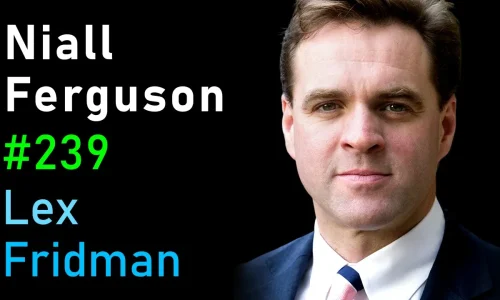See all Lex Fridman transcripts on Youtube

Niall Ferguson: History of Money, Power, War, and Truth | Lex Fridman Podcast #239
2 hours 41 minutes 13 seconds
🇬🇧 English

Omnivision Solutions Ltd
- Getting Started
- Create Transcript
- Pricing
- FAQs
- Recent Transcriptions
- Roadmap